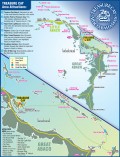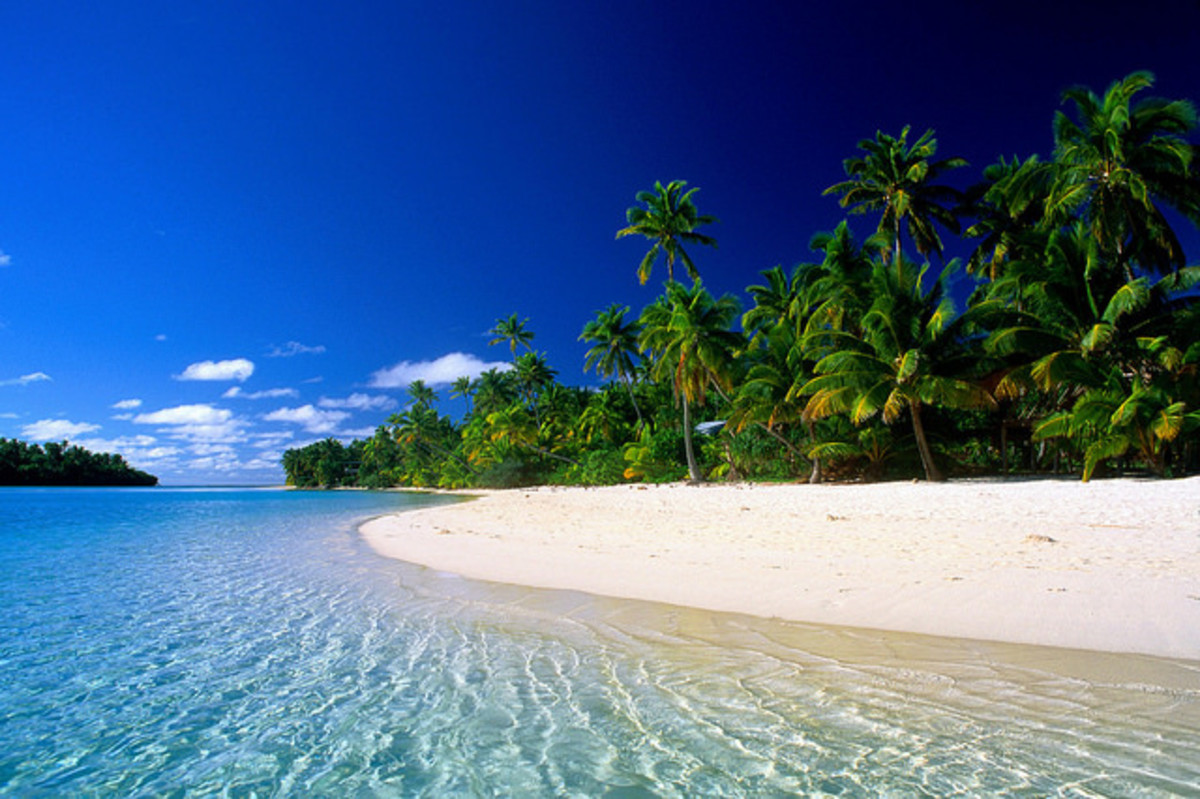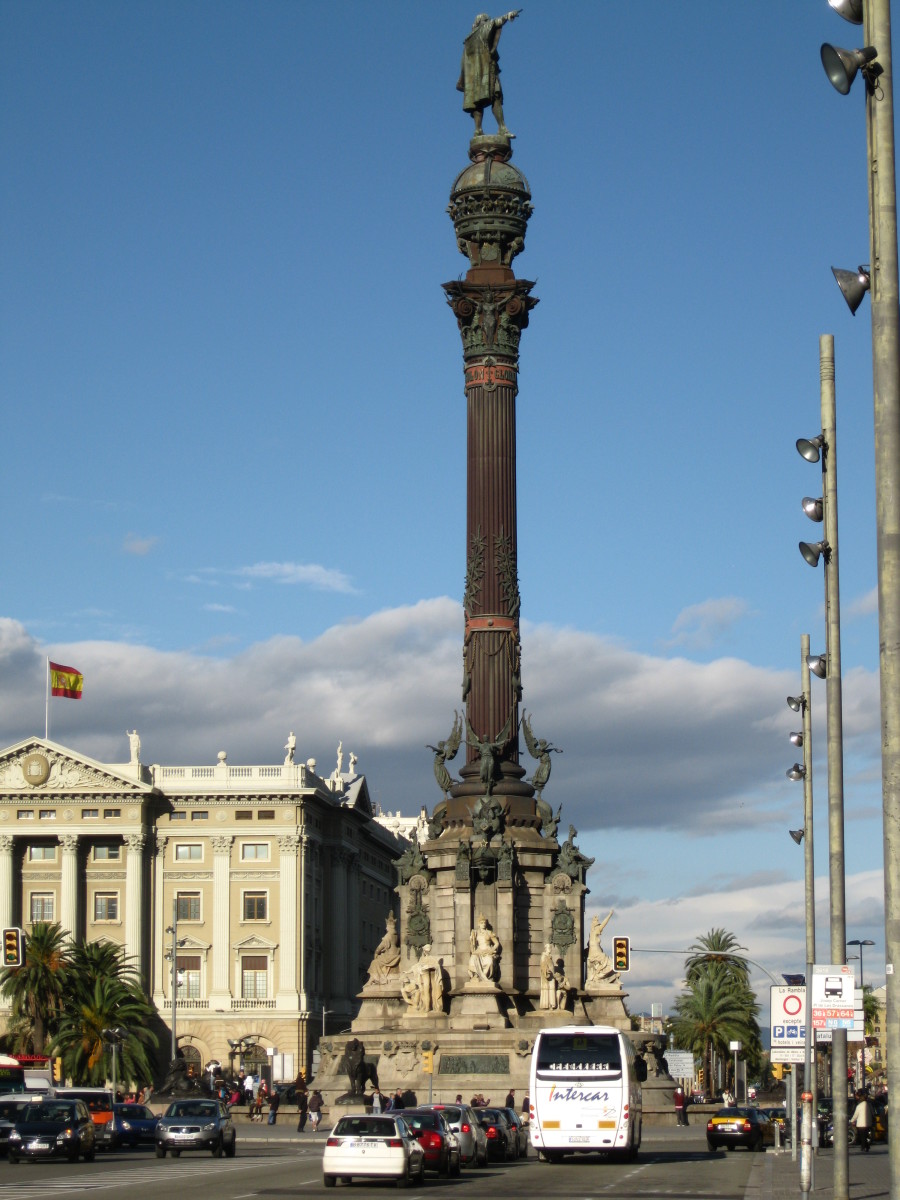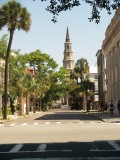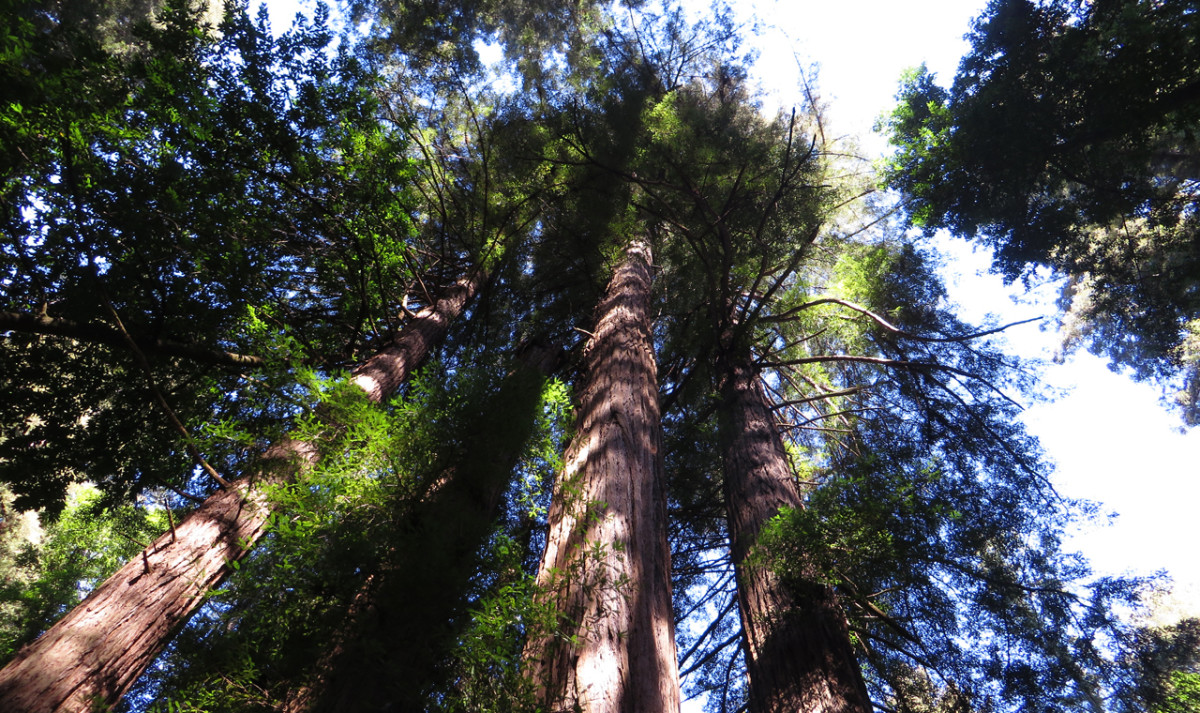Bahamas - History - Political Change
Fort Charlotte Provided Safety
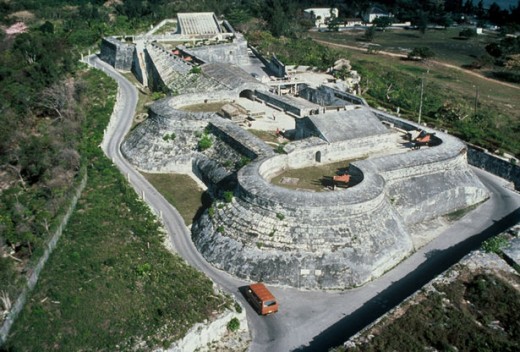
Bahamas - Island Histroy
We recently took a Bahamas cruise and had a day of touring on Nassau which piqued my interest in Bahamian history and their lifestyle today. The Bahamas are an archipelago of approximately 700 islands and 2,400 uninhabited islet and cays with a population of 305,655.
They lie about 50 miles off the east coast of Miami. Only 30 islands are inhabited, with the most important being New Providence, where the capital, Nassau is located, and Grand Bahama, Abaco, Eleuthera Andros, CatIsland and San Salvador (also know as Watling’s Island).
The Siboney Indians, the first known residents of the Bahamas, survived here about 7,000 years ago on conch and fishing. Sometime after the Siboneys disappeared, the Arawak Indians, also called Lucayans, migrated to the islands from the Amazon region of South America. Christopher Columbus’s first encounter of the area was on October 12, 1492.
He landed on the island of San Salvador. Columbus encountered the Arawak people (also called Lucayan Indians) and initially exchanged gifts them. However, Spanish slave traders captured these people to work in the gold mines in Hispanola, and in the course of 25 years the people were all destroyed.
They did the same thing with some of the Indians in the Dominican Republic. According to our guide in Nassau, Columbus was a part of this plan and I heard the same thing when I was in the Dominican Republic on two occasions. They hate Columbus in both places and I was told several times that he raped women and men, stole and murdered people. I have no way to know if that is true but the folk legend passed down through the ages is identical on both islands. The Spanish did not colonize the Bahamas.
Bahamas Islands
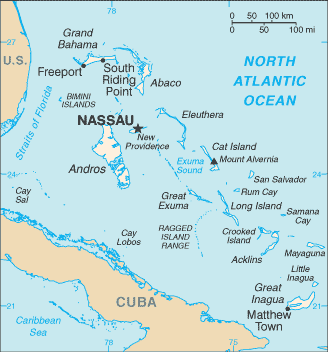
Nassau - Parliament Square and Rawson Square
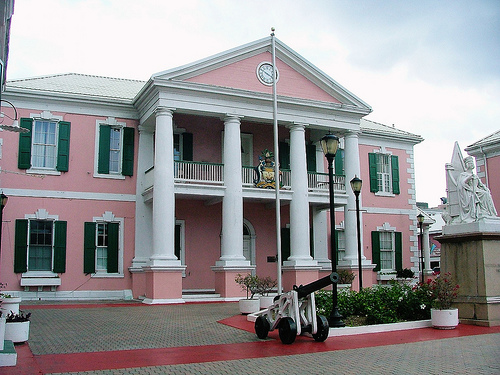
The Evolution of Political Change
The Bahamas system of electing members to the House of Assembly after 1729, had requirements that a voter had to be a legal owner of land and only the men had the right to vote. June 1, 1942, marked the beginning of modern day politics. That is when the Burma Road Riots happened as a result of the Agitation by laborers for equal pay for equal work, regardless of color or race.
At this time there was an airfield being constructed in the Western New Providence for the use of American forces, which was also part of the labor dispute, and today it is the Lynden Pindling International Airport.
The birth of the Progressive Liberal Party was born out of this labor movement. This party wanted equal work, majority rule and freedom to pursue their hopes and dreams. William Cartwright, a publisher, real estate broker and a member of the House of the Assembly is accredited with conceiving this party. He invited a black judge and other dignitaries to a meeting, and he also invited several black business men and lawyers, who refused to join the party. Everything changed after the general strike of 1958.
There was a 16 day peaceful protest strike that brought Nassau to an abrupt halt. Men protested and did not leave their posts for 16 straight days. The result was the Trade Union and Industrial Conciliation Act and the setting up of a Labor Department. Woman did not get the right to vote until 1962. The most significant day for all Bahamians was Black Tuesday, January 10, 1967.
This is the day where Majority Rule began, representing the transition from the old Bahamas to a New Bahamas, the end of minority government to Majority Rule, which began the new democracy. It gave the Bahamian people economic empowerment, equality, more opportunity, and social justice.
This was a long awaited event for the black people that represent 85% of the Bahamian population. The democracy has continued to evolve in peace and with more prosperity for their people.
A Look at the Bahamas
How the Bahamas Became an Independent Nation
The British started building settlements on the island in the 17th century. When the British colonized the islands they reported the Bahamas had lush forests which were chopped down for the plantations and have never grown back. During the Revolutionary War, the Bahamas fell to Spanish forces under General Galvez in 1782. British-loyalist expedition later recaptured the islands. After the war Britain granted land grants to the American Loyalist and the sparse population tripled within three years. They wanted to grow cotton but the soil wasn’t suitable and the plantations failed. Many of the inhabitants today are descended from slaves brought to work on the plantations or from the liberated Africans set free by the British navy after the abolition of slave trade.
In the 18th century Fort Charlotte was built, actually 3 forts together. Once it was built Nassau was never attacked again. The Bahamas sheltered cays became one of the favorite haunts for the pirates in the early 18th century.
The Bahamas were a crown colony of England from 1717 until they were granted internal self government in 1964. The islands moved toward greater autonomy by 1968, with the Progressive Liberal Party winning an overwhelming victory, led by Minister Lynden O. Pindling against the white United Bahamians Party.
The black population (85% of Bahamians) was in power for the first time. With their new mandate they negotiated with Britain to become an independent nation on July 10, 1773. The British emancipated the slaves in 1834.
Long Battle for Freedom
The people of the Bahamas fought a long battle to finally get independence and freedom. They are a flourishing community and their tourism industry is now booming.
This content is accurate and true to the best of the author’s knowledge and is not meant to substitute for formal and individualized advice from a qualified professional.


